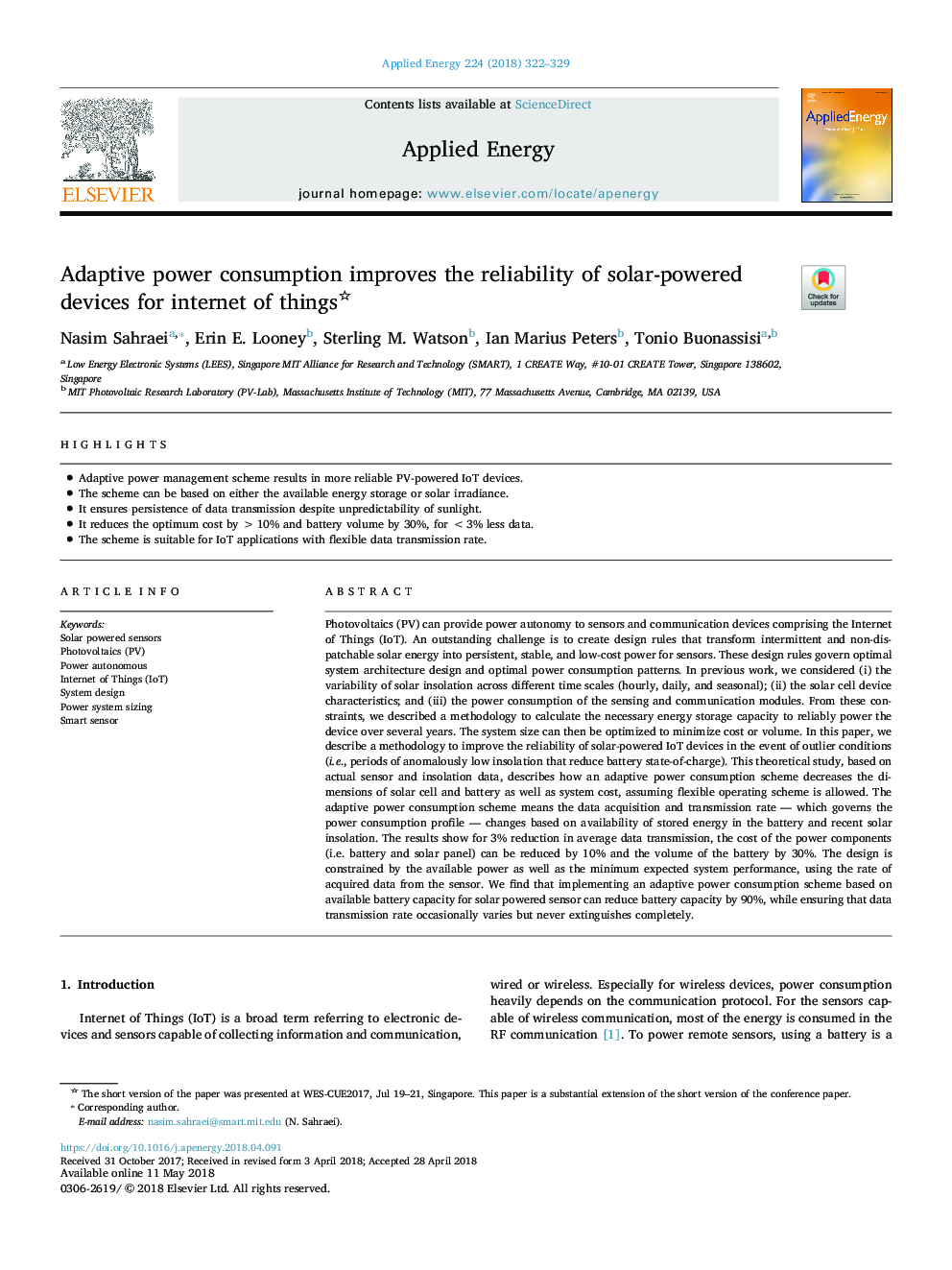| کد مقاله | کد نشریه | سال انتشار | مقاله انگلیسی | نسخه تمام متن |
|---|---|---|---|---|
| 6680016 | 1428066 | 2018 | 8 صفحه PDF | دانلود رایگان |
عنوان انگلیسی مقاله ISI
Adaptive power consumption improves the reliability of solar-powered devices for internet of things
ترجمه فارسی عنوان
مصرف انعطاف پذیر، قابلیت اطمینان دستگاه های خورشیدی را برای اینترنت از چیزهایی افزایش می دهد
دانلود مقاله + سفارش ترجمه
دانلود مقاله ISI انگلیسی
رایگان برای ایرانیان
کلمات کلیدی
موضوعات مرتبط
مهندسی و علوم پایه
مهندسی انرژی
مهندسی انرژی و فناوری های برق
چکیده انگلیسی
Photovoltaics (PV) can provide power autonomy to sensors and communication devices comprising the Internet of Things (IoT). An outstanding challenge is to create design rules that transform intermittent and non-dispatchable solar energy into persistent, stable, and low-cost power for sensors. These design rules govern optimal system architecture design and optimal power consumption patterns. In previous work, we considered (i) the variability of solar insolation across different time scales (hourly, daily, and seasonal); (ii) the solar cell device characteristics; and (iii) the power consumption of the sensing and communication modules. From these constraints, we described a methodology to calculate the necessary energy storage capacity to reliably power the device over several years. The system size can then be optimized to minimize cost or volume. In this paper, we describe a methodology to improve the reliability of solar-powered IoT devices in the event of outlier conditions (i.e., periods of anomalously low insolation that reduce battery state-of-charge). This theoretical study, based on actual sensor and insolation data, describes how an adaptive power consumption scheme decreases the dimensions of solar cell and battery as well as system cost, assuming flexible operating scheme is allowed. The adaptive power consumption scheme means the data acquisition and transmission rate - which governs the power consumption profile - changes based on availability of stored energy in the battery and recent solar insolation. The results show for 3% reduction in average data transmission, the cost of the power components (i.e. battery and solar panel) can be reduced by 10% and the volume of the battery by 30%. The design is constrained by the available power as well as the minimum expected system performance, using the rate of acquired data from the sensor. We find that implementing an adaptive power consumption scheme based on available battery capacity for solar powered sensor can reduce battery capacity by 90%, while ensuring that data transmission rate occasionally varies but never extinguishes completely.
ناشر
Database: Elsevier - ScienceDirect (ساینس دایرکت)
Journal: Applied Energy - Volume 224, 15 August 2018, Pages 322-329
Journal: Applied Energy - Volume 224, 15 August 2018, Pages 322-329
نویسندگان
Nasim Sahraei, Erin E. Looney, Sterling M. Watson, Ian Marius Peters, Tonio Buonassisi,
